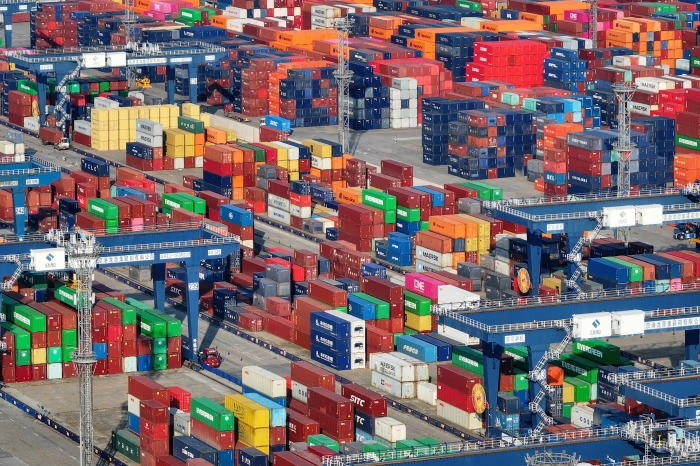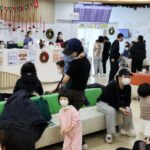
China is seeking to coordinate its response to U.S. tariffs with Japan and South Korea, Chinese state media said Monday, as the world’s second-largest economy looks to bolster regional economic collaboration.
Japanese and Korean officials said there was no decision to coordinate action with Beijing, but said the countries have recently discussed trade issues amid three-way talks over the weekend, the first such dialogue in five years.
A social-media account run by China’s state broadcaster said in a Weibo post on Monday that the three countries will strengthen dialogue on supply-chain cooperation and export controls, and plan to conduct speedy negotiations toward a trilateral free-trade agreement.
According to the post, Japan and South Korea are hoping to import some semiconductor raw materials from China, while China is also interested in importing chip products from Japan and South Korea.
A South Korean trade ministry spokeswoman told The Wall Street Journal that there were “some exaggerated aspects” in the Chinese social-media post.
“The three countries exchanged views on the global trade environment, and as you can see in the joint statement, you can understand that they shared an understanding of the need for continued economic and trade cooperation,” she said, referring to a statement published by the three countries on Sunday.
Japan’s trade minister Yoji Muto said at a news conference on Tuesday that the three countries exchanged opinions on the trade environment but added that they didn’t reach any agreement to take joint action against U.S. tariffs.
The comments come after senior trade officials from the three Asian export hubs held their first economic dialogue in five years on Sunday as they gear up for more tariffs from the U.S. this week. President Trump is expected to announce a new slate of broader, higher tariffs on Wednesday aimed at reducing trade deficits and bringing manufacturing jobs back to the U.S.
All three are major trading partners of the U.S. running historically high trade surpluses. Japan and South Korea are among the top auto exporters and steel suppliers to the U.S.
Since taking office in January, Trump has slapped an extra 20% tariff on all Chinese imports. On top of in-effect levies on steel imports, he also announced new 25% tariffs on imported cars and auto parts last month, sending major auto-exporting nations into crisis mode.
In response to the auto tariffs set to take effect on April 3, South Korea said it planned emergency support for the auto industry, with trade minister Ahn Duk-geun saying the industry faced “considerable damage.”
Tokyo has said it will keep asking Trump for a tariff exemption, with Prime Minister Shigeru Ishiba saying Japan will “thoroughly examine the impact on domestic industries and employment and take all necessary measures.”
Relations among Beijing, Seoul and Tokyo have been strained over the years by issues including territorial disputes. Some analysts say that Trump policies could shift relations between the three Asian countries, particularly as Japan and South Korea stand to be among the hardest hit by U.S. tariffs.
“We reaffirmed our conviction that trilateral efforts in the economic and trade sectors are essential for fostering the prosperity and stability of the regional and global economy,” according to a joint statement released by the three Asian countries after the Sunday meeting.
The countries also said Sunday that they will speed up negotiations for a trilateral free-trade agreement, which have been in process since 2012 but have yet to produce tangible results.
Write to Singapore Editors
singaporeeditors@dowjones.com













